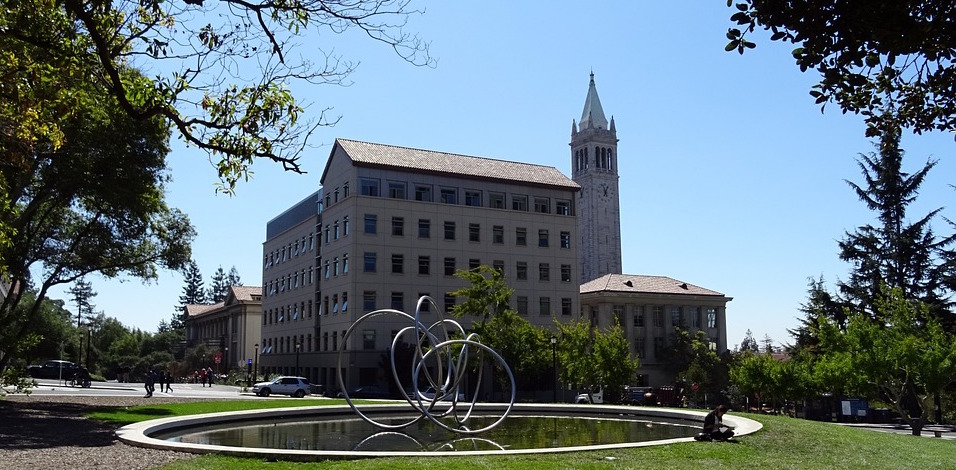Alameda County Property Tax

Alameda County spans the rolling, oak-dotted hills of the East Bay. Oakland and Berkeley are two of its more well-known urban focal points, but the county also contains many desirable suburbs of San Francisco. If you own property in the area, there are a few things you’ll want to know about Alameda County property taxes.
4 Things Investors and Homeowners Need to Know About Alameda County Property Taxes
- How Alameda County Property Taxes Are Calculated
- Tax Rates for Alameda County
- How to Pay Alameda County Property Taxes
- How to Lower Your Tax Liability
Property taxes in Alameda County are based on the assessed value of the property. Thanks to Proposition 13, the assessed value cannot increase by more than 2% each year for tax purposes.
1. How Alameda County Property Taxes Are Calculated
By prohibiting the assessed value of your property from increasing by more than 2% every year, Proposition 13 creates a nice respite for property owners in the area who might see the market value of their home skyrocket in the Bay Area’s hot market. Even better, Proposition 8 requires the County Assessor to choose the lesser of the two values between the 2% yearly increase or the market value as of January 1 of the current year. This means that, if the housing market takes a dip, you can at least catch a tax break.
Note, however, that the base year for calculating your property taxes will change if the property changes ownership. The market value of the home at that time will then become the new base, from which that 2% will be calculated (note again that it is not the final sale amount of the home, but rather the market value).
Another measure of Proposition 13 that helps out property owners is capping the real estate taxes at 1% of the property’s value. However, voter-approved bonds and special assessments can be added on top of this 1%, resulting in a slightly different number. Even so, at the time of this article, the average percentage levied against properties in Alameda County was 0.866%
Keep in mind that if your home changed hands or you made some improvements on the property, the value of the home will be reassessed. Moreover, you’ll also receive a secured property supplemental tax bill, which is prorated to the date of sale or improvement.
While property sales do trigger a reassessment, you don’t have to let that assessment stay set in stone — you can contest it. Take note: if you do not agree with the newly-assessed value of your home, it is your responsibility to contest it within 60 days of receiving the supplemental tax bill (that’s roughly two months). The paperwork you need to file is called the Application for Changed Assessment, and that can be filed with the Assessment Appeals Board. They can be reached over the phone via the general number for the Assessor’s office (510-272-3787), and their address is:
County Administration Building
Room 536
1221 Oak Street
Oakland, California 94612-4241
2. Tax Rates for Alameda County
The average percentage levied against properties is currently 0.866%, but Alameda County covers an extremely diverse area in terms of home price — so your best bet is to look properties up by parcel value. Homes in Piedmont may be around seven figures in value (resulting in a $10,000 tax bill), while homes in San Leandro might be just around $380,000 (resulting in a roughly $3,200 tax bill).
Additionally, depending on where your property is located within Alameda County, or if it’s in a special district, there will be fixed charges and special assessments for city services and voter-approved projects. The local government of the county is actually quite transparent about the exact costs of these bonds — and how the budget (funded from tax revenue) is distributed among schools, parks, libraries, transit, and civic services.
For every dollar collected by the local government:
- Schools receive 41 cents
- Cities receive 18 cents
- Redevelopment projects are allocated 13 cents
- Special districts receive 13 cents
- The county receives 15 cents
If you have any questions about the exact nature of extra charges on your tax bill, the number of the agency will be listed on your bill and you can call them directly. The impact of bonds and measures approved by voters is a good reason to stay abreast of the news and the local government and know what types of measures are on the ballot. Of course, some of these extra charges may be worth the price. Everyone knows that a good local school district is a huge boost to the marketability of your rental property, and a general positive indicator of the neighborhood in general.
The exact tax rate will vary by area. There are 14 different cities in the county, and unincorporated areas as well. Your best bet for determining the exact rate of your property is to look it up by parcel number or address—which you can do on the county assessor’s website.
Another tax rate you’ll want to keep in mind as an investor is the local transfer tax, which is actually quite high in Alameda County: a whopping $15 for every $1000 of the purchase price. Considering that some homes are above seven figures, you’re looking at a decent chunk of money. Homes in Oakland and Berkeley are also subject to additional fees and taxes. You’ll want to talk to your agent and get in the know about who pays what between the buyer and seller.
In addition to secured property tax for your property, there might be other unsecured property tax you need to pay as well, such as for boats, airplanes, and office equipment. If you have any of that in Alameda County, you can expect an unsecured property tax bill for that as well.

3. How to Pay Your Alameda County Property Taxes
You can make your property tax payment through the mail, in person, online, and even on your smartphone. The Alameda County app, AC Property, is available for iPhone and Android. Keep in mind that paying with the app will not help you avoid the 2.5% credit card convenience fee.
You can mail in a check and make it payable to Treasurer-Tax Collector, Alameda County.
The mailing address is:
Alameda County Treasurer-Tax Collector
1221 Oak Street, Room 131
Oakland, CA 94612
You won’t get a receipt if you mail in your taxes, so check your bank statement to see that the check has cleared. You can also walk into the office — just a few blocks away from scenic Lake Merritt — and deliver cash, money order, or cashier’s check right to the Tax Collector.
If you want to pay by phone, the number is 510-272-6800.
The first installment is due anywhere between November 1 and December 10. Any delinquent payments made after that will be subjected to a 10% penalty. The second installment is due anywhere between February 1 and April 10. Late payments will also incur a 10% penalty. Luckily, if December 10 or April 10 falls on a weekend or on a legal holiday, you won’t get hit with that 10% penalty as long as it’s received by 5:00 PM on the following business day.
You may have an arrangement with your mortgagee where the taxes are added on to your monthly payment, and the lender remits the tax amounts to the county. If you’ve paid off your home, or your lender no longer does this for whatever reason, make sure that you’ve received your tax bill and to pay it on time.
You also have the option of paying the entire tax bill in the first installment, which could yield a successful savings strategy when it comes to filing your income tax.
4. How to Lower Your Tax Liability
The median home value in Alameda County is $500,000. With the average tax bill hovering right around $4,500, tax assessment is one thing every property owner will want to know about. But if Alameda County tax bills are making your head spin, there are a few different strategies you could leverage to save some money.
Make a Lump Sum Payment
As we mentioned, if you pay your property taxes entirely with the first installment, you could list that amount while filing your income taxes and save some money there.
File for an Exemption
You could also get an exemption just by living in your property: the homeowner’s exemption. The county assumes that, by actually living in your Alameda County residence, you will contribute to the local economy. Other exemptions exist as well, for non-profit, religious, and higher education institutions.
Transfer Your Residence
If you’re over 55 or severely and/or permanently disabled, you can sell your old home (wherever it is in California) and transfer its base value for assessment purposes to a new home of equal or lesser value — as long as you move into your new Alameda County residence within two years.
Keep It in the Family
If you keep the estate within your family as the home changes owners, you can also avoid a reassessment. This may not necessarily be a way to lower your own taxes, but it can certainly help out a family member.
Rent Out Your Property
A competent tax advisor may be able to guide you through some rental property tax deductions that could shave a substantial amount off your property tax bill. Of course, you don’t want to let the money you’re making from rental properties fall under the shadow of lawsuit-related risk. If you have some sort of rental enterprise going on, you will also want to speak to a qualified advisor about setting up an LLC.
Appeal the Assessed Value of Your Property
You can always appeal the assessed value of your home. You can appeal the value informally with the county assessor, just by presenting them pertinent factual information that contradicts their assessment — for example, perhaps a professional appraisal by a licensed home inspector or one of the real estate appraisers in the area.
If that doesn’t work, you can file a formal appeal application for reduction in the assessed value with the local Assessment Appeals Board…but make sure you do so between July 2 and September 15. Keep in mind that around 75% of these appeals will not end up seeing a reduction in the assessed value, but 25% will… which is actually not too bad, in terms of chances for a property owner to successfully make an appeal.
There are other more complex options for maximizing your profits while minimizing your losses, such as setting up a trust. To find out more about those options, you’ll want to speak to a competent tax and/or legal advisor.
How Does Alameda County Compare to Other Cities in California and the United States?
The county of Alameda is likely one of the most diverse counties in the country in terms of property value. It’s also a culturally, demographically, and economically diverse place as well. In fact, Oakland is the second most diverse city in the United States. That means that some part of the county, like the urban areas around Oakland, see lower home values in the $200,000 range, while other areas, like Piedmont, see home values around one million dollars or more. This creates a wide disparity in terms of taxation, from $2,600 to $10,000. Overall statistics can be misleading because there is so much diversity from city to city. As a county, the average tax bill is a little over $4,000, compared to the $3,414 state average and the $2,279 national average.
Some parts of Alameda County are almost exclusively comprised of single-family dwellings, such as the suburban environs of wealthier commuters who prefer to live on the more affordable outskirts of the Bay. If you’re renting property, the thought of a vacant single-family dwelling might make you feel blue, especially when thinking about the high tax bills.
That said, multifamily housing might carry greater appeal — and there are plenty of other parts of the county with a mix of single and multi-family properties. If you decide to capitalize on a multi-family unit, however, make sure you have a clear understanding of landlord-tenant law in the area.
Let’s face it: California is expensive. The Bay Area is more expensive. Certain environs of the Bay Area (like the City of Alameda, within Alameda County) are even more expensive — not only in terms of property values but in cost of living, as well. For example, while the average sales tax in California is just 6%, in Alameda County it’s 9.25%, which is a decent indicator of how life in nicer parts of the East Bay can cost you more.

Alameda County Property Tax
Understanding the ins and outs of real estate taxes is crucial for minimizing your losses in real estate, whether you’re renting properties or flipping them. This is especially true in an area with high rates of taxation, like many of the areas in the county of Alameda. However, potential investors should not be discouraged from staking a claim in the area. Because of its diverse climate, Alameda County affords a wider range of opportunities for investors at various levels to set down roots in the much-coveted San Francisco Bay Area.
3 Steps to Create an Invisible Investor Strategy
The greatest mistake that people make when it comes to asset protection for real estate is not understanding the risks that are waiting out there for them. This eBook reveals the structure you should follow to ensure your hard earned money is protected from frivolous lawsuits and costly tax mistakes.



